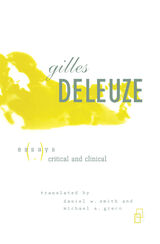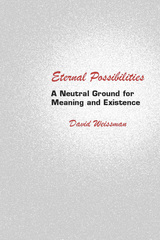4 start with E start with E

Advanced language learning has only recently begun to capture the interest and attention of applied linguists and professionals in language education in the United States. In this breakthrough volume, experts in the field lay the groundwork for approaching the increasingly important role of advanced language learning in the larger context of multilingual societies, globalization, and security.
This volume presents both general and theoretical insights and language-specific considerations in college classrooms spanning a range of languages, from the commonly taught languages of English, French, and German to the less commonly taught Farsi, Korean, Norwegian, and Russian.
Among theoretical frameworks likely to be conducive to imagining and fostering instructed "advancedness" in a second language, this volume highlights a cognitive-semantic approach. The theoretical and data-based findings make clear that advanced learners in particular are characterized by the capacity to make situated choices from across the entire language system, from vocabulary and grammar to discourse features, which suggests the need for a text-oriented, meaning-driven approach to language teaching, learning, and research.
This volume also considers whether and how information structuring in second-language composition reveals first-language preferences of grammaticized concepts. Other topics include curricular and instructional approaches to narrativity, vocabulary expansion, the demands on instructed programs for efficiency and effectiveness in order to assure advanced levels, and learners' ability to function in professional contexts with their diverse oral and written genre requirements. Finally, the volume probes the role and nature of assessment as a measurement tool for both researching and assessing advanced language learning and as an essential component of improving programs.


The final work of this essential thinker.
Essays Critical and Clinical is the final work of the late Gilles Deleuze, one of the most important and vital figures in contemporary philosophy. It includes essays, all newly revised or published here for the first time, on such diverse literary figures as Herman Melville, Walt Whitman, D. H. Lawrence, T. E. Lawrence, Samuel Beckett, Leopold von Sacher-Masoch, Alfred Jarry, and Lewis Carroll, as well as philosophers such as Plato, Spinoza, Kant, Nietzsche, and Heidegger.
For Deleuze, every literary work implies a way of living, a form of life, and must be evaluated not only critically but also clinically. As Proust said, great writers invent a new language within language, but in such a way that language in its entirety is pushed to its limit or its own “outside.” This outside of language is made up of affects and precepts that are not linguistic, but which language alone nonetheless makes possible. In Essays Critical and Clinical, Deleuze is concerned with the delirium-the process of Life-that lies behind this invention, as well as the loss that occurs, the silence that follows, when this delirium becomes a clinical state. Taken together, these eighteen essays present a profoundly new approach to literature by one of the greatest twentieth-century philosophers.

Eternal Possibilities: A Neutral Ground for Meaning and Existence builds on David Weissman's earlier Dispositional Properties and makes a signal contribution to the study of metaphysics. Here, broadening and enriching the point of view adopted in his earlier work, Weissman cites and criticizes a large number of theories proposed by authors from Plato to Wittgenstein and others exploring language theory and metaphysics.
Students of Wittgenstein will be especially interested in Mr. Weissman's critical examination of Wittgenstein's claim in the Tractatus that possibilities are the facts for logic. Weissman proposes a modal theory of properties: they exist in the first instance as possibilities. He argues that a sentence is meaningful if it signifies a property or complex of properties existing as a possible, and true if that possible is instantiated. The status of possibilities and their relation to actual states of affairs are considered in detail.
READERS
Browse our collection.
PUBLISHERS
See BiblioVault's publisher services.
STUDENT SERVICES
Files for college accessibility offices.
UChicago Accessibility Resources
home | accessibility | search | about | contact us
BiblioVault ® 2001 - 2024
The University of Chicago Press









